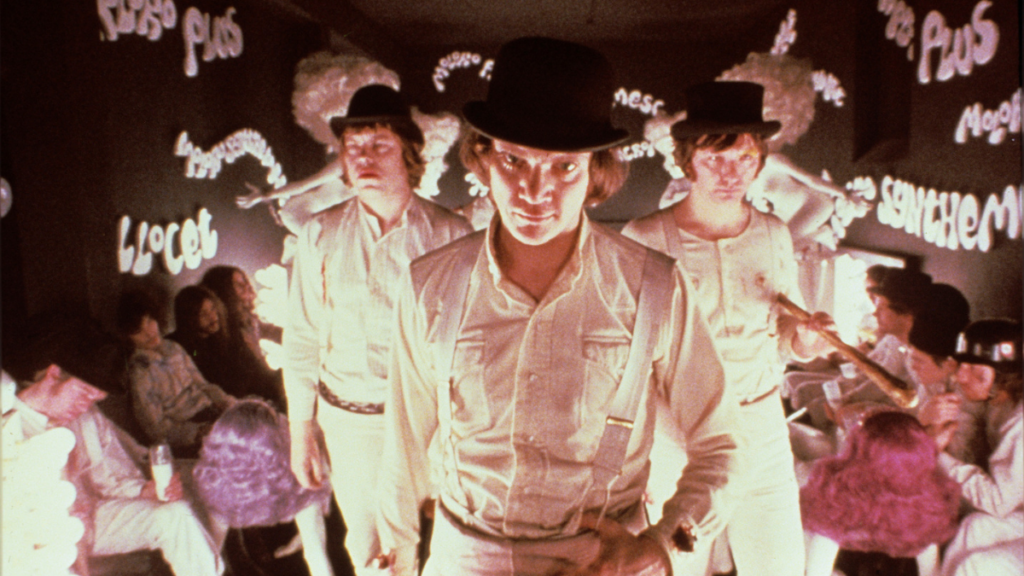In the realm of cinematic history, few films have left an indelible mark as profound and controversial as Stanley Kubrick’s ‘A Clockwork Orange’. Adapted from Anthony Burgess’s novel of the same name, the film takes audiences on a visceral and thought-provoking journey through the dark corridors of dystopia, blending surrealism, social commentary, and unsettling beauty.
The Origins:
Released in 1971, ‘A Clockwork Orange’ emerged during a tumultuous era, reflecting the societal anxieties and cultural shifts of the time. Stanley Kubrick, renowned for his masterful storytelling and visual prowess, undertook the daunting task of bringing Burgess’ complex narrative to life on the silver screen.
Dystopian Vision:
Set in a bleak and futuristic England, the film introduces us to the charismatic but sociopathic protagonist, Alex DeLarge, brilliantly portrayed by Malcolm McDowell. Alex and his gang of “droogs” embark on a spree of ultraviolence, creating a nightmarish landscape that serves as a metaphor for the societal decay and moral erosion Kubrick aimed to explore.
A Symphony of Sound and Vision:
Kubrick’s meticulous attention to detail is evident throughout the film, but it is perhaps most pronounced in the marriage of visuals and music. The iconic use of classical compositions, particularly Beethoven’s Ninth Symphony, juxtaposed against scenes of brutality, creates an unsettling harmony that lingers in the viewer’s mind.
Controversy and Censorship:
Upon its release, ‘A Clockwork Orange’ sparked heated debates and faced censorship in several countries due to its explicit content and unflinching portrayal of violence. Kubrick himself chose to withdraw the film from distribution in the United Kingdom, contributing to its enigmatic allure.
Also Read: Chiaroscuro: Forging Great Visual Storytelling With Light And Shadow
The Ludovico Technique:
At the heart of the narrative lies the controversial Ludovico Technique, a psychological experiment designed to “cure” Alex of his violent tendencies. This device, along with the ethical implications it raises, serves as a central focal point for discussions surrounding free will, morality, and the role of the state in shaping individual behaviour.
Cinematic Legacy:
Despite its divisive reception upon release, ‘A Clockwork Orange’ has endured as a cinematic masterpiece, influencing generations of filmmakers and artists. Its impact on pop culture is immeasurable, with references and homages permeating various mediums.
‘A Clockwork Orange’ remains a cinematic enigma, a visceral exploration of the human condition that challenges societal norms and raises profound philosophical questions. Stanley Kubrick’s visionary direction, coupled with Malcolm McDowell’s iconic performance, has left an indelible imprint on the landscape of cinema. As we revisit this dystopian odyssey, we are compelled to confront the uncomfortable truths it unveils and ponder the enduring relevance of its unsettling narrative in our ever-evolving world.
–Silviya.Y
